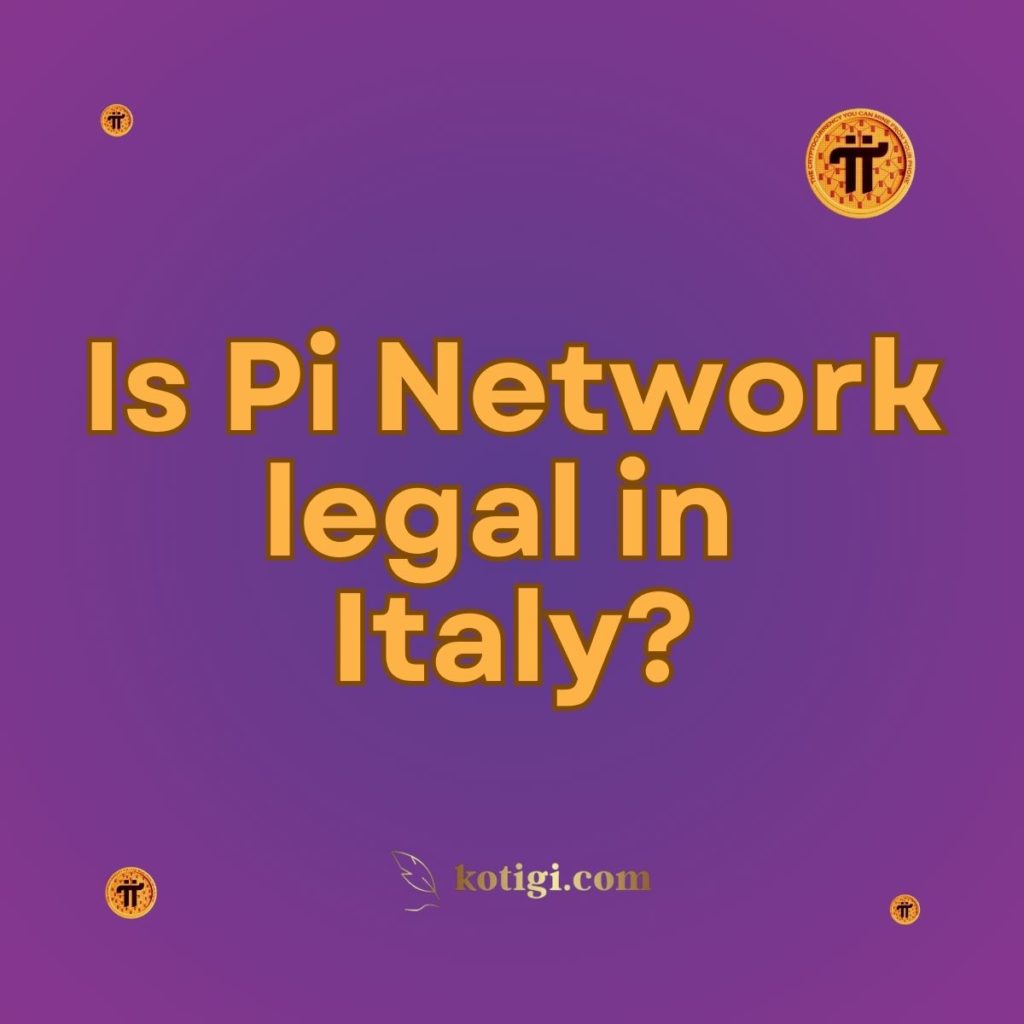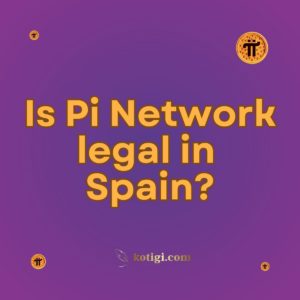
Is Pi Network legal in Italy?
Pi Network is a cryptocurrency project that has attracted global attention, including in Italy. As with any digital asset, understanding its legal status in Italy is crucial for both users and investors. Below is an up-to-date analysis of Pi Network’s legality and the regulatory environment in Italy.
1. Regulatory Status in Italy
1.1 Cryptocurrency Regulations in Italy:
Italy, like many European Union (EU) countries, does not have specific legislation solely dedicated to cryptocurrencies like Pi Network. However, cryptocurrencies are recognized and regulated under broader financial and digital asset laws. Italy adheres to EU regulations, with the Italian financial regulatory body, the Commissione Nazionale per le Società e la Borsa (CONSOB), and the Bank of Italy playing significant roles in overseeing cryptocurrency activities. While cryptocurrencies are not considered legal tender, they are recognized as digital assets, subject to regulations on anti-money laundering (AML), taxation, and consumer protection.
1.2 Pi Network’s Legal Standing:
As of now, Pi Network remains in its development phase, and its tokens are not yet listed on major exchanges. Consequently, it does not currently fall under strict regulatory scrutiny in Italy. However, as Pi Network progresses and its tokens gain monetary value or become tradable, it will likely be required to comply with existing regulations applicable to digital assets and financial services in Italy.
2. Italian Financial Regulators’ Oversight
2.1 Classification and Regulation of Cryptocurrencies:
CONSOB and the Bank of Italy oversee the regulation of financial markets, including cryptocurrencies. If Pi Network’s tokens are eventually classified as financial instruments, the project would need to comply with Italian regulations. This could involve registration, reporting obligations, and providing transparent information to users and investors.
2.2 Initial Coin Offerings (ICOs) and Token Sales:
Should Pi Network opt to launch an Initial Coin Offering (ICO) or a similar fundraising mechanism, it would be subject to regulations enforced by CONSOB. This includes ensuring that the ICO is conducted with full transparency, adequate information disclosure, and compliance with relevant Italian laws and EU directives.
3. Anti-Money Laundering (AML) and Counter-Terrorism Financing (CTF) Compliance
3.1 AML and KYC Obligations:
Italy has stringent AML and CTF regulations in line with EU standards. If Pi Network introduces financial transaction features or enables the exchange of Pi tokens, it must adhere to these regulations. This includes implementing Know Your Customer (KYC) procedures to verify user identities and reporting any suspicious activities to the relevant authorities.
3.2 Registration and Compliance Requirements:
If Pi Network or any related services in Italy are deemed to be operating as digital currency exchanges or financial service providers, they would need to register with the appropriate Italian regulatory bodies and comply with AML and CTF obligations. Failure to meet these requirements could lead to significant legal consequences and penalties.
4. Taxation and Consumer Protection in Italy
4.1 Tax Responsibilities:
In Italy, cryptocurrencies are treated as financial assets for tax purposes. This means that any profits from the sale, trade, or exchange of Pi Network tokens would be subject to capital gains tax. Italian users are required to report their cryptocurrency transactions to the tax authorities and pay any applicable taxes. The Agenzia delle Entrate (Revenue Agency) provides guidelines on how cryptocurrencies should be treated for tax purposes.
4.2 Consumer Protection Laws:
Pi Network must comply with Italian consumer protection laws, which are designed to safeguard users from misleading information and ensure transparency. This includes providing clear, accurate information about the risks associated with using Pi Network and adhering to ethical marketing practices. Non-compliance with consumer protection regulations could result in legal repercussions in Italy.
5. European Union (EU) Regulatory Framework
5.1 EU-Wide Regulations:
As an EU member state, Italy is subject to EU-wide regulations on digital assets and cryptocurrencies. Pi Network must ensure compliance not only with Italian laws but also with EU directives, such as the Markets in Crypto-Assets (MiCA) regulation, which aims to establish a comprehensive regulatory framework for cryptocurrencies across the EU.
5.2 Cross-Border Operations:
If Pi Network operates or has users across multiple EU countries, it must consider cross-border regulations that could impact its operations in Italy. Compliance with EU-wide regulations will ensure that Pi Network can legally operate within Italy and throughout the EU.
Conclusion
Pi Network is currently legal in Italy, but its regulatory status will depend on the project’s future developments, particularly if Pi tokens become tradable or hold monetary value. As Pi Network evolves, it must comply with Italian and EU regulations regarding AML, KYC, taxation, and consumer protection. Italian users should stay informed about the legal and regulatory landscape to ensure compliance and mitigate potential legal risks.




